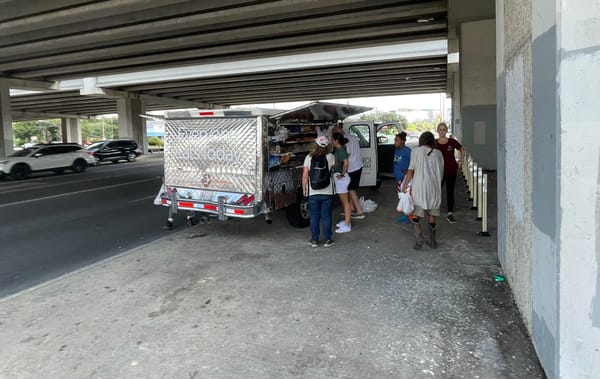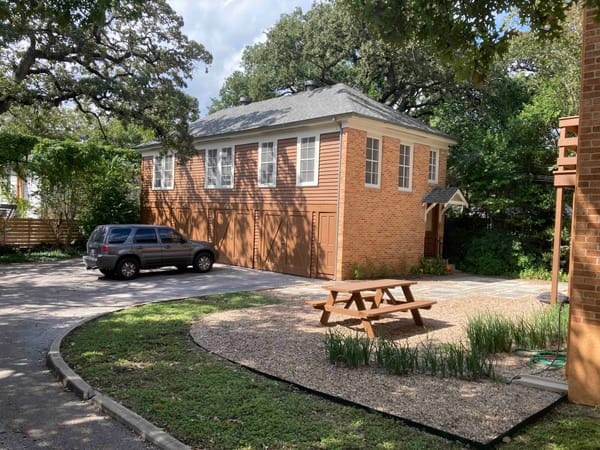In memoriam: Bill Spelman
"The wonk with a heart of gold."
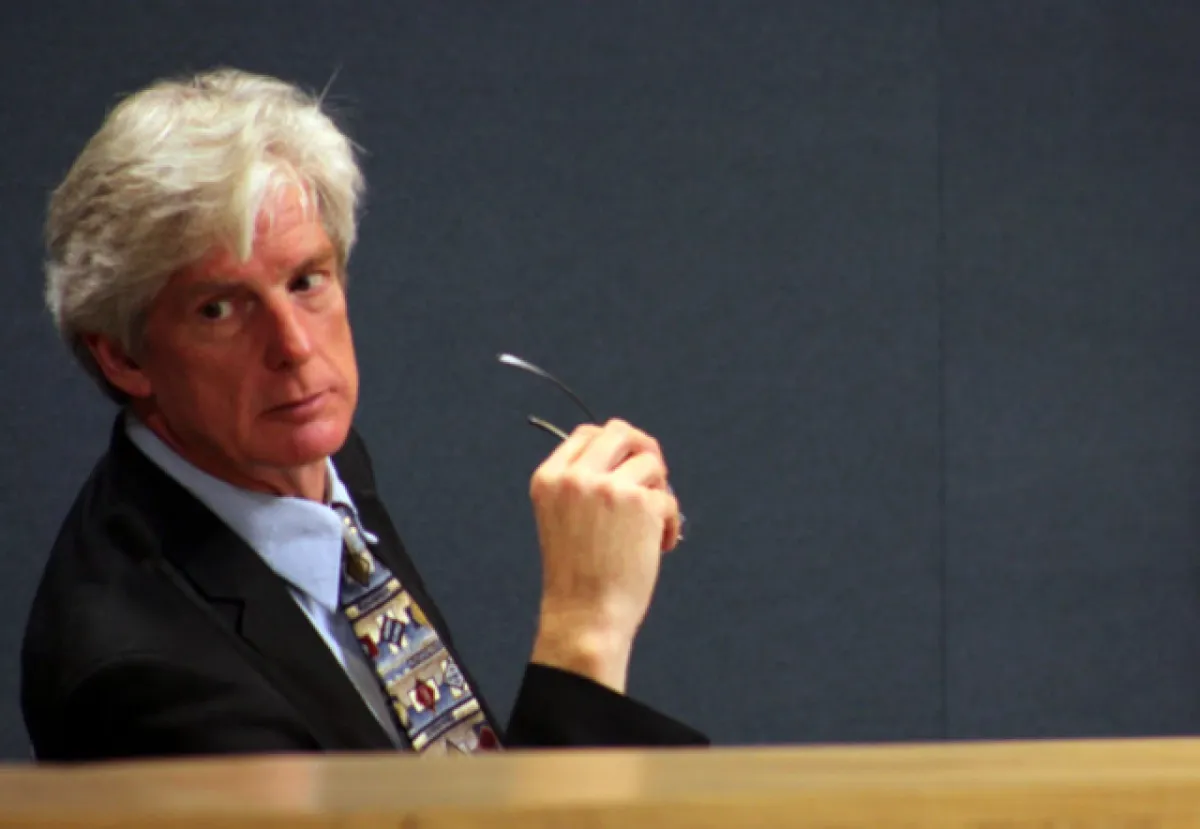
Congressman Lloyd Doggett broke the news yesterday that former Council Member Bill Spelman died. Spelman served on City Council from 1997-2000 and again from 2009-2015:
Saddened by the passing of my friend Bill Spelman—a dedicated public servant and tireless advocate for equity who helped shape Austin for the better. From City Council to the LBJ School, Bill brought intellect, integrity, and heart to everything he did. Our community is stronger… pic.twitter.com/z76S87Eu3o
— Lloyd Doggett (@RepLloydDoggett) July 20, 2025
I only met Spelman once and he had left Council before I began covering City Hall, but I was keenly aware of the impact he had on public policy. His wonky wisdom informed the views of others who worked for him or with him, many of whom now have influential roles in city government or advocacy.
Spelman, a criminal justice scholar at UT, was often a lonely voice against the big increases to the APD budget pushed by Chief Art Acevedo and Mayor Lee Leffingwell.
In sharp contrast to the activists who pushed for police cuts years later, Spelman's arguments were always grounded in data.
From the archives of former Chronicle City Hall reporter Michael King:
But Spelman produced some simple graphs that at least required the chief to spend some time justifying his burgeoning personnel. Spelman's research reflected that from 1999-2013, while Austin's population was indeed growing substantially, both crime (especially violent crime) and calls for APD service have remained relatively flat, even in absolute numbers. Meanwhile, the number of APD patrol officers has risen by more than 200, and the number of investigators has more than doubled. Given that steady increase in manpower, "Why," asked Spelman's charts, "are officers still running from call to call?" and "Why do we need more detectives?"
And another:
I spoke to Spelman afterward, and he was characteristically resigned about the outcome, adding that he is gratified that the APD budget is no longer tied by Council policy to a "2.0 officers per thousand residents" ratio. "Now they have to justify their budget, just like all the other departments," he said. "They just don't have to justify it as well." Spelman might have added: that's in large part due to his dogged attention to the subject over the last several years. He's actually a published authority on the subject of police staffing – his longtime research interest at UT's LBJ School and elsewhere, including on behalf of police departments – and he hastened to add that he "strongly supports" the police department and believes that APD "person to person ... has the best cops in the United States. We just have too many of them."
If City Council had actually pursued a Spelman-style approach to police budgeting in 2020, instead of aligning itself with police abolitionists, APD might have actually become a more efficient, progressive police force. Instead, "defund" prompted a backlash and an overcorrection that has resulted in an even bigger police department that shows few signs of reform. (The pandemic crime spike probably would have fueled an increase in police spending no matter what, but the defund hangover made it worse)
APD was hardly the only department whose budget drew Spelman's scrutiny. He joined Leffingwell in warning City Council not to "treat Austin Energy as a cash cow," another chicken that has come home to roost. Last month Julio Gonzalez Altamirano, a longtime admirer of Spelman, highlighted a policy championed by Spelman to tie city spending to residents' incomes:
City Council should resuscitate the Spelman Affordability Benchmark as it makes financial decisions & communicates them. It clarifies when local government spending is genuinely hurting affordability versus re-investing prosperity. Here’s the key part of Spelman’s ‘14 resolution: pic.twitter.com/b8YMrsXBfu
— Julio Gonzalez Altamirano (@juliogatx) June 26, 2025
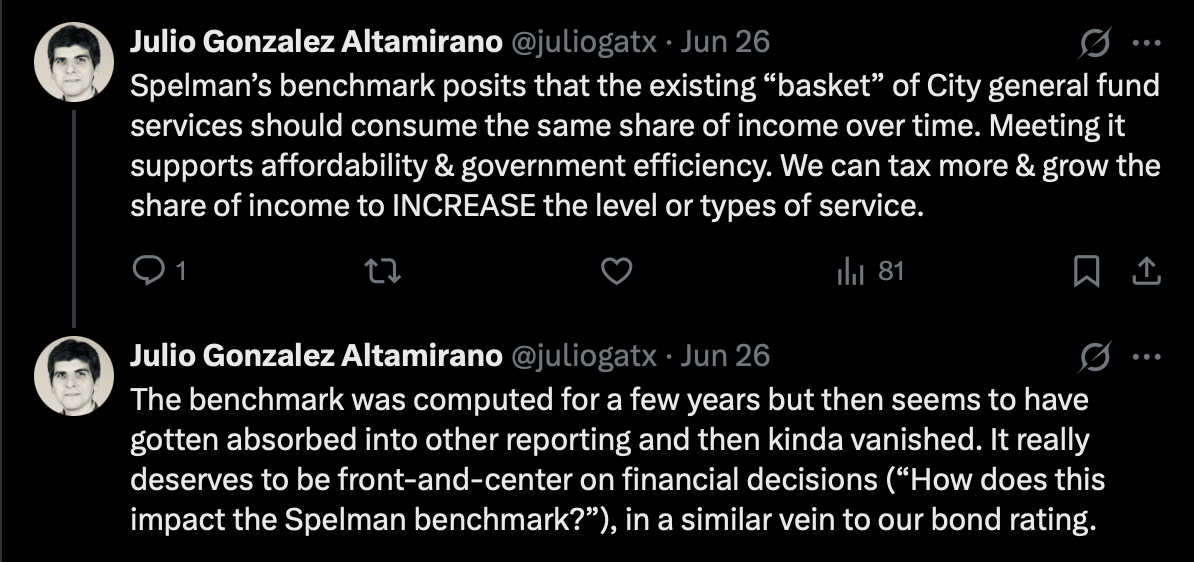
Others paid tribute to Spelman:
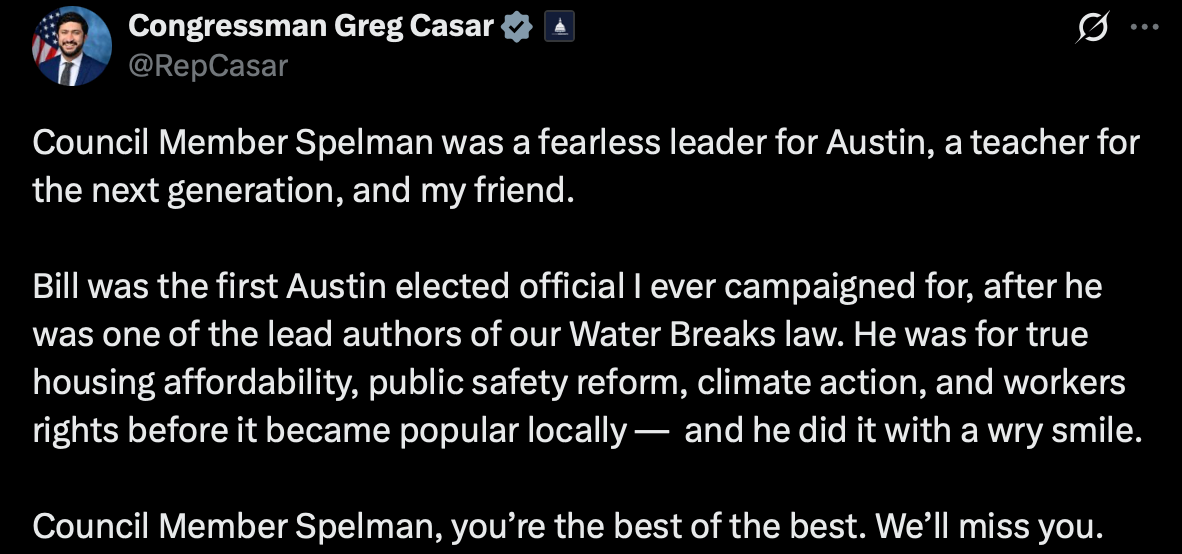




Glen Coleman fondly recalled the debate between Spelman and his boss, CM Randi Shade, over Water Treatment Plant 4, one of the big political battles of the 2000's:
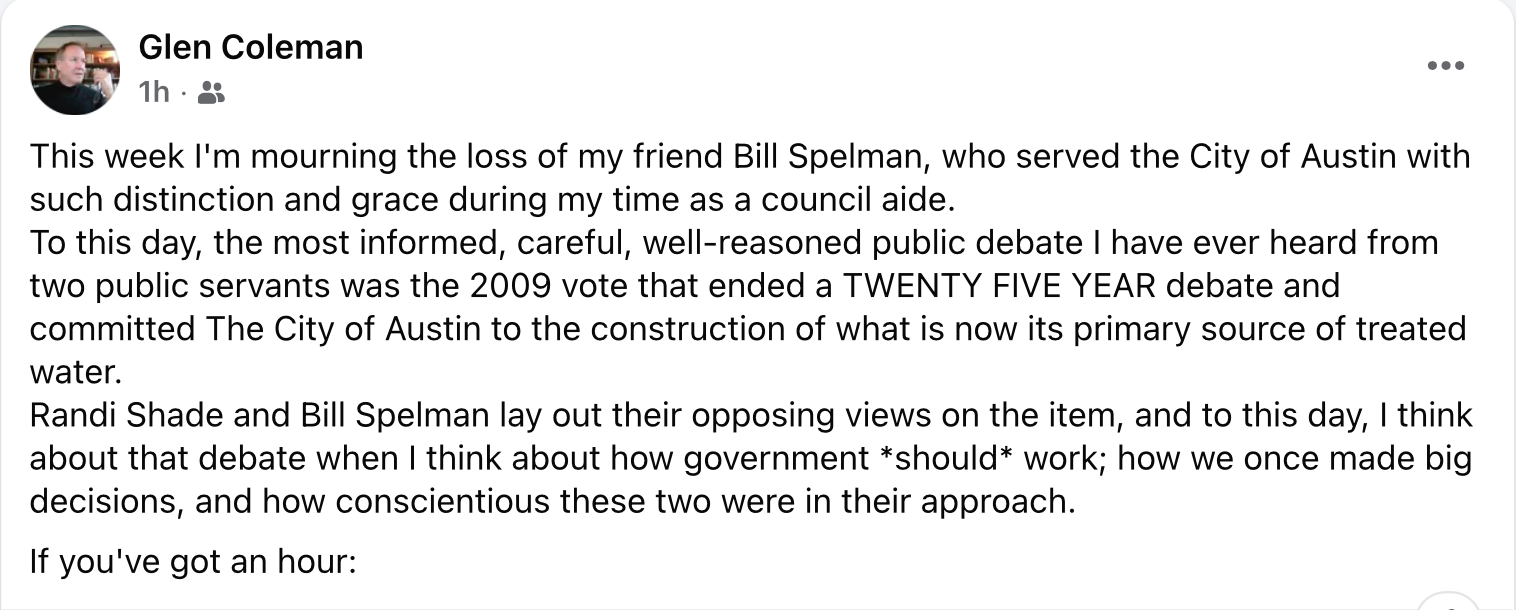
You can watch the debate he's referencing here.
Lonny Stern, executive director of Movability, sent me an email describing Spelman as "sort of a Willy Wonka character" in local politics:
"He certainly had the vision thing and the chops to back it up, but he’d often play the game with whimsy and play his cards close to his chest."
If you appreciated this article, please consider subscribing to the Austin Politics Newsletter for analysis and reporting on city politics four times a week. If you aren't ready to get a subscription, you can show your appreciation by buying me a cup of coffee to fuel continued watchdog journalism.



